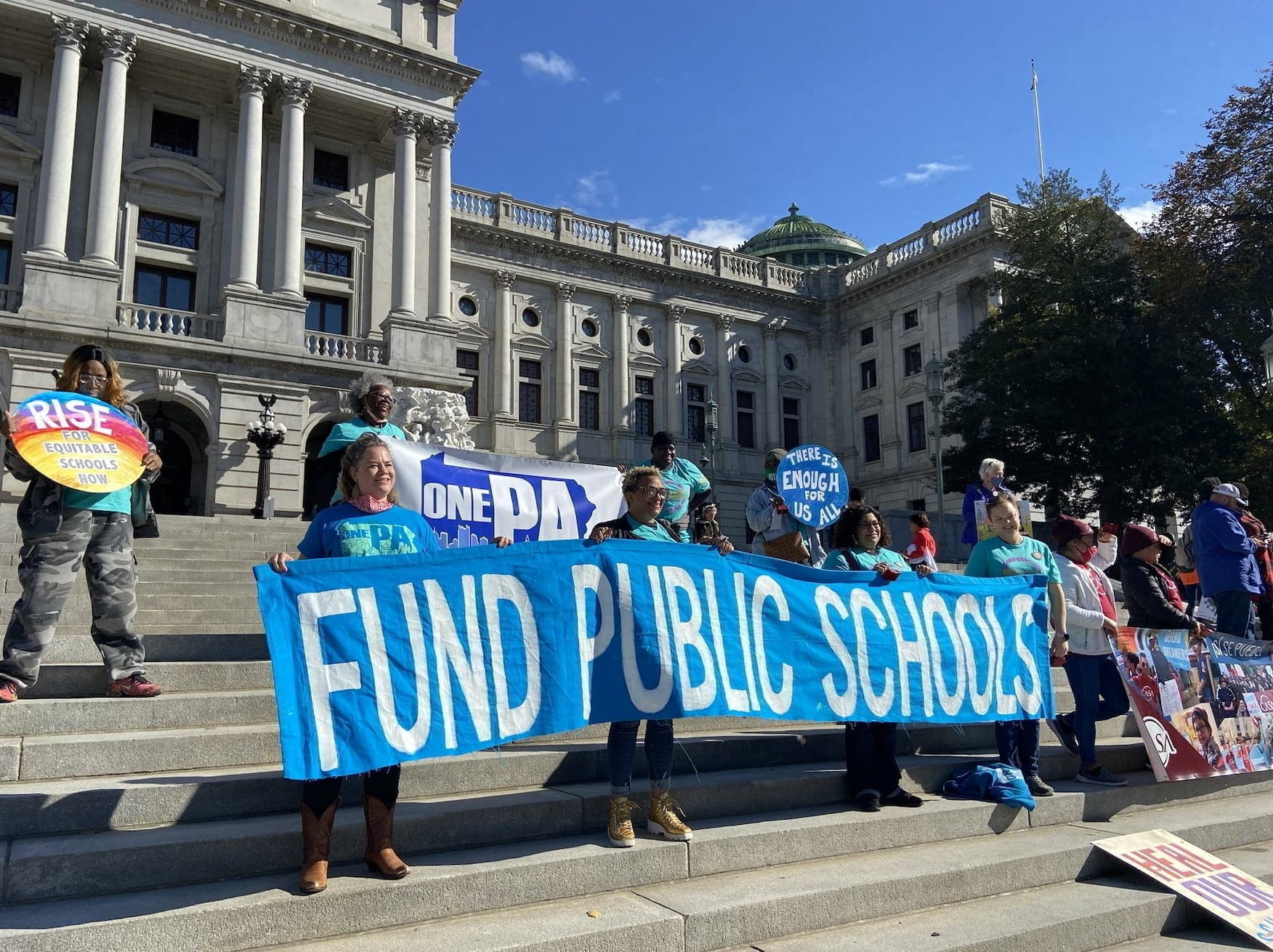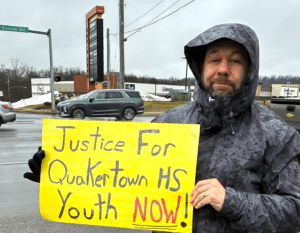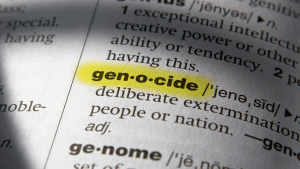State funding isn’t keeping up with mandated costs in nearly every Pennsylvania school district, underlining the need for policymakers to swiftly address a state court judge’s mandate to fix the way the commonwealth pays for public education.
That’s the big takeaway from a new report, released Wednesday, that runs down the share of state and local funding in Pennsylvania’s 500 school districts.
The data, compiled by the advocacy group PA Schools Work, is broken out across a series of individual fact sheets for each school district, from the Abington schools in Philadelphia’s suburbs to the Uniontown Area Schools in southwestern Pennsylvania, and all points between.
According to the report, more than eight in 10 school districts (84%) aren’t adequately funded because of a lack of state support for K-12 education. And 490 out of 500 school districts, or 98%, have raised local property taxes to make up the difference.
“Depending on the federal data source, Pennsylvania is between the 43rd and 45th lowest state when it comes to the share of district revenue that comes from the state,” the report’s authors wrote.
The cost disparity leaves few areas of school districts’ budgets untouched, the document concludes.
Mandated costs for charter school tuition, special education, and pension funding have increased by about $6.5 billion over the last decade while state funding supporting those costs grew by only $2.8 billion, the report’s authors noted, pointing to 2022 data compiled by Pennsylvania Association of School Business Officials.
“As a result, local taxpayers are increasingly carrying the burden of these costs. These mandated, unfunded costs divert resources from those students with the most unmet instructional needs,” analysts wrote.
Democratic Gov. Josh Shapiro’s first budget plan, unveiled to lawmakers last month, allocates more than $1 billion in new education funding, the Capital-Star previously reported.
Shapiro has traveled the state to build support for his schools agenda, as well as other initiatives, included in the $44.4 billion spending plan for the new fiscal year that starts July 1.
During a stop in Pittsburgh in mid-March, Shapiro told educators and others that his schools plan gives every kid a “fair shot.”
“A big focus of my budget is making sure that every young person in Pennsylvania, every child of God, gets a fair shot here in this commonwealth,” Shapiro said. “One of the best ways we can ensure that they get a fair shot is by investing in our public schools across Pennsylvania.”
Meeting the mandate set down by the Commonwealth Court earlier this year will require “millions and millions if not billions of more dollars” over several years, Shapiro said during that Pittsburgh visit.
In Wednesday’s report, public school advocates called for:
* “Increasing basic education funding by at least $3 billion through the state’s fair funding formula;
* “Ensuring sufficient resources for special education and career and technical education;
* “Delivering targeted property tax relief to those who need it,” and
* “Generating the necessary revenues through sustainable, recurring funding sources.”
“The state must fund public education equitably and adequately so that all Pennsylvania students, regardless of race, ethnicity, ability, family income or the community where they live, can attend public schools that will ensure they graduate with the 21st-century skills necessary for success in college or a career,” advocates wrote.
Pennsylvania Capital-Star is part of States Newsroom, a network of news bureaus supported by grants and a coalition of donors as a 501c(3) public charity. Pennsylvania Capital-Star maintains editorial independence. Contact Editor John Micek for questions: info@penncapital-star.com. Follow Pennsylvania Capital-Star on Facebookand Twitter.







